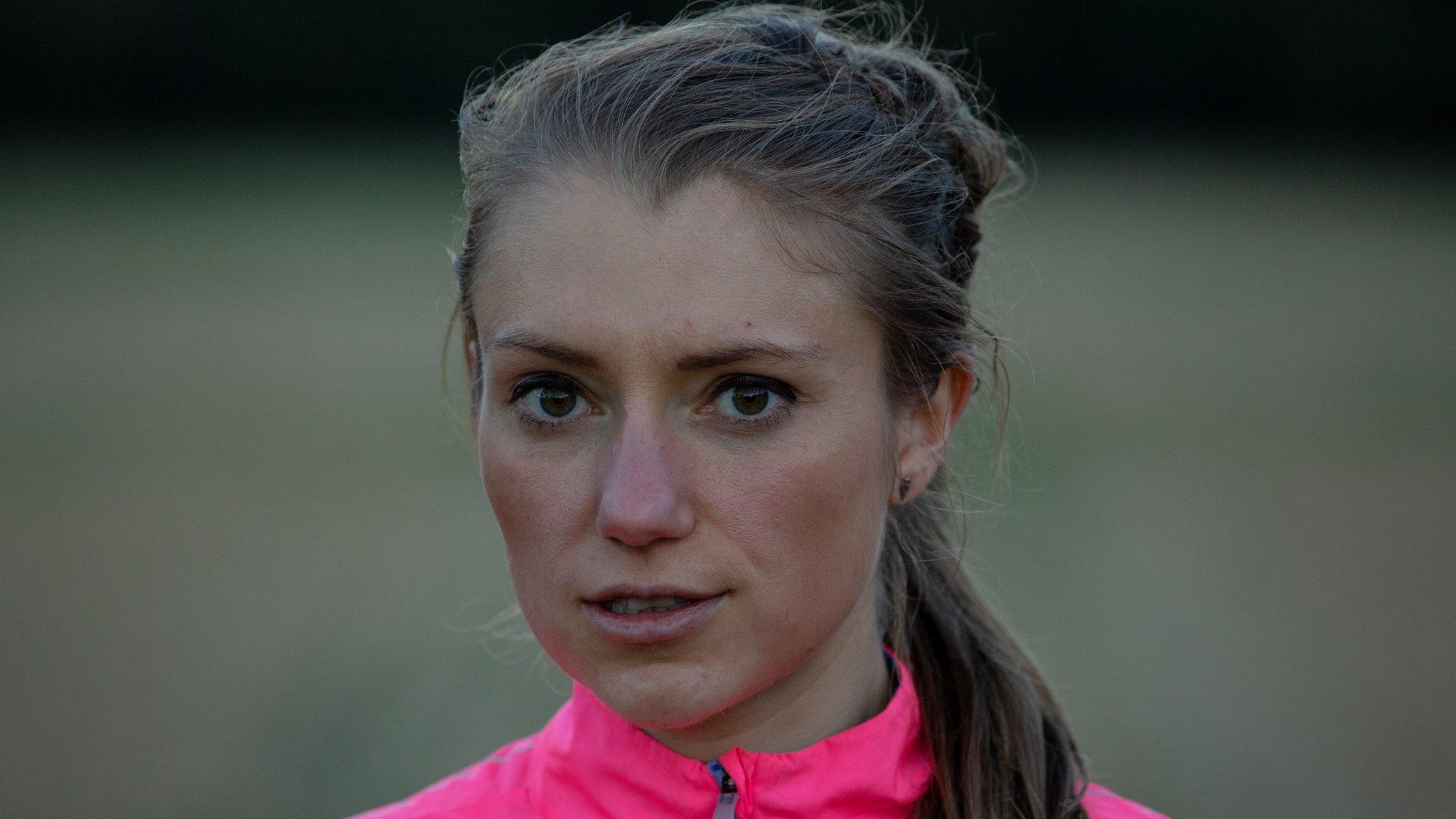Eating disorders in UK sport: 'A general culture that weight loss is good'
- Published
The British athletes battling eating disorders in sport
Rebecca Quinlan dreamed of becoming a professional runner when she was growing up.
As a teenager, she had already begun to restrict what she ate, believing it would improve her performance in local running championships. But her restrictive eating escalated when she started studying sport science at university.
She's spoken out as part of a BBC Panorama documentary about eating disorders in British sport, investigated by Olympic hurdler Colin Jackson.
The largest study to date on this area, external suggests that elite athletes are more likely than the rest of the population to develop an eating disorder.
"I think there is a general culture, particularly in track and field athletics you know… weight loss is good, weight loss will enhance your performance," says Rebecca.
"As part of my course I had swimming lessons every week, so I had lost a lot of weight and it would have been visible to the swimming teacher seeing me in a swimming costume every single week, that I'd gone from virtually a normal weight to severely underweight but nothing was ever said."
Rebecca was diagnosed with anorexia nervosa. It's clear from photos taken during her time in treatment that the condition had an extreme impact on her body.
"The doctor sat me down and she was like, 'Rebecca, you are dying… You will die if you don't get help immediately.' She said that my kidneys, liver and my heart were failing.
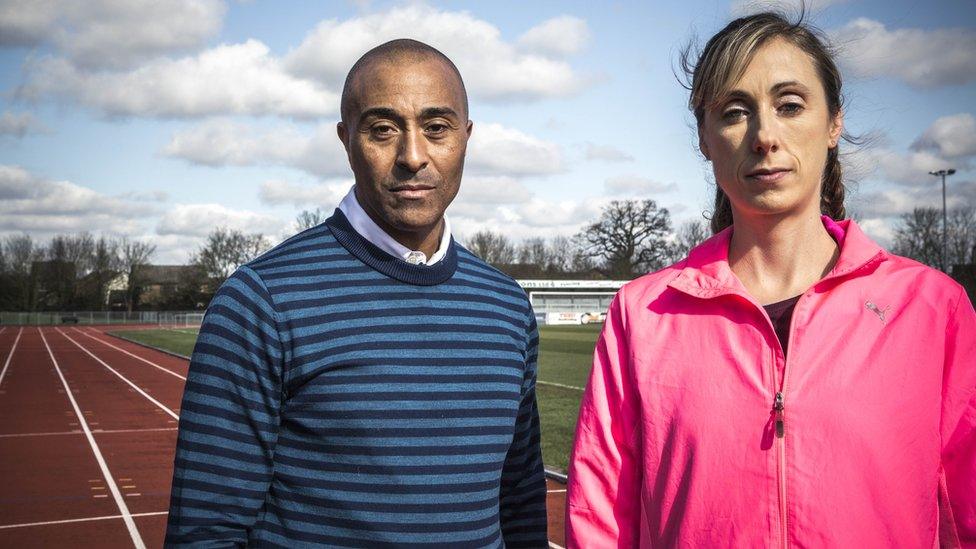
Panorama: Sport's Hidden Crisis is on on Monday evening on BBC One
"I have osteoporosis now, which is incurable, I still don't have a period even though I've regained the weight.
"It started out so innocently just trying to lose weight for me to achieve my dream of becoming a professional athlete… I feel sad now to think that my dream got taken over by the eating disorder."
Eating disorders can affect the hair, teeth, skin and digestive system. The damage done to the cardiovascular system means that at their worst, eating disorders like anorexia can be deadly.
As part of the documentary, Olympic silver medallist Jackson discusses his own problems with food and asks why those involved in sport are far more likely to have an eating disorder than the rest of the population.
'I was called a nutter'
Rachel Morris was first diagnosed with anorexia when she was 18, which later developed into bulimia.
She's a former Paralympian and has competed at an elite level in both cycling and rowing, winning gold in the 2008 and 2016 games.
When she started her Paralympic sporting career, she says she was very honest with her coaches about her difficulties with food.
In the run-up to the Rio Games, training with the GB Paralympic rowing team, Rachel says she was so worried about her eating that she went to see a coach to ask for help.
Rachel says that she was told she was "a nutter".
"The biggest thing I took out of it was that I was the weakest link of the team - if I cracked, I was going to be the one that let the whole team down."
British Rowing denied that anybody was called a "nutter" and told Panorama there were no weak links on the Paralympic team.
Rachel says she trained alongside other GB rowing teams where members sometimes went to great lengths to hit weight goals so they could compete.
"You've got athletes that don't make their weight and so are in a room the morning they're going to get weighed, a hotel room where you've got indoor rowing machines inside with the heaters on and black bin liners over you - and that that's acceptable to sweat off that weight, to drop off that last half kilogram, whatever it is, to be able to make the weight for your race. To me, that's just an eating disorder factory."
Sports could have funding withdrawn
The chair of UK Sport, Dame Katherine Grainger, said athletes struggling with eating disorders can speak out and their issues will be addressed.
"If there's an environment where it's feeling uncomfortable and people are being pushed into situations they're not comfortable to be in, they can speak out and there are places to go that they can talk about it and it will be addressed," she said.
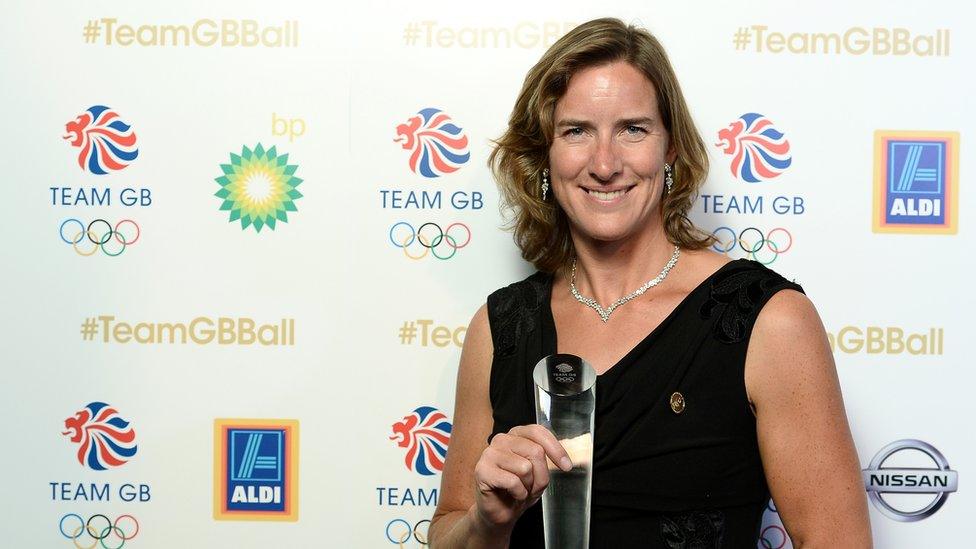
Rower Dame Katherine Grainger is the UK's most decorated female Olympian
Asked what the punishment would be for sports organisations that do not meet the correct standards for addressing problems, Dame Katherine said "working in partnership" with them was the best approach.
But she added: "If in a worst case scenario, if a sport wasn't to meet the right standards that are involved in the funding agreements that we have with them all, the ultimate thing that UK Sport could do is withdraw funding from a sport. It's very rarely used."
Dame Katherine did acknowledge there is more work for UK Sport to do and athletes are struggling to speak up.
British Rowing said they take all aspects of athlete health and welfare very seriously.
They say they believe that currently none of the athletes in their senior quads have declared or known eating disorders and cannot categorically deny the anecdote about bin liners as an athlete may have done this without informing staff or coaches.
Watch Panorama: Sport's Hidden Crisis on Monday 19 October at 19.40 BST on BBC One and BBC iPlayer.
If you or someone you know has been affected by issues raised in this story, help and support is available here or at bbc.co.uk/actionline
- Attribution
- Published8 May 2020
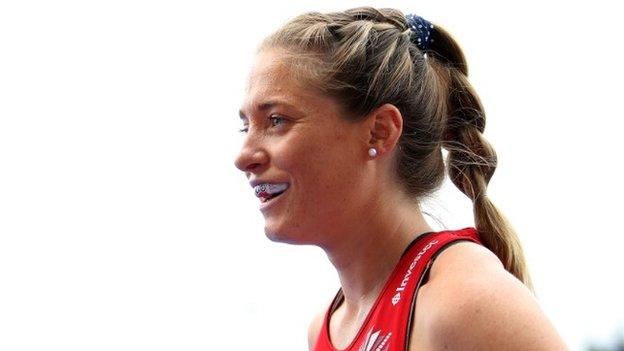
- Attribution
- Published7 July 2020
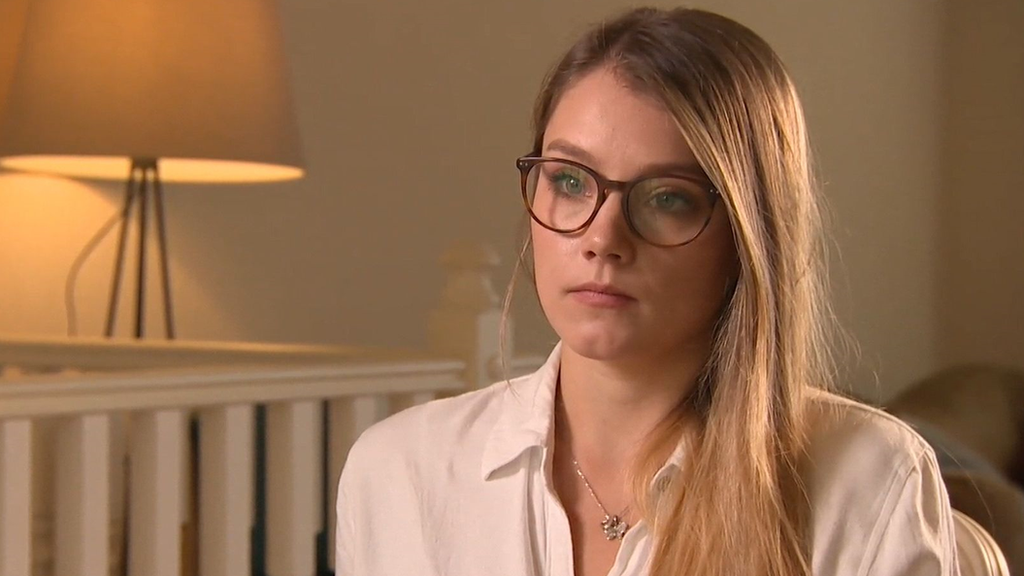
- Published9 December 2018
